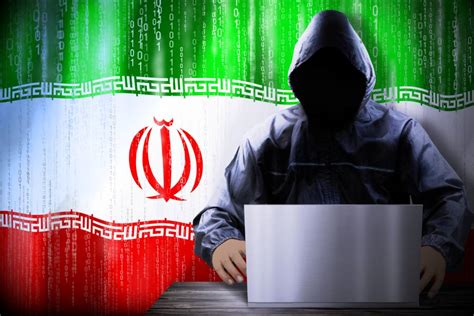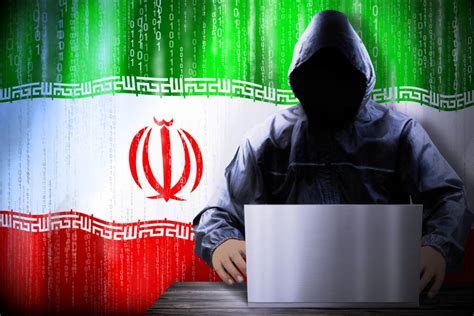
Hackers suspected to be linked to Israel reportedly targeted and compromised Iran’s biggest exchange, draining tens of millions of dollars from the institution’s accounts in a sophisticated cyberattack. The attack, which Iranian officials have yet to confirm or deny, has amplified existing tensions between the two nations and raised concerns about the vulnerability of Iran’s financial infrastructure.
Suspected Israeli Group Hacks Iran’s Biggest Exchange, Draining Millions
A sophisticated cyberattack, allegedly carried out by an Israeli-linked hacking group, has targeted Iran’s largest exchange, potentially siphoning off tens of millions of dollars. The attack, which has not been officially acknowledged by Iranian authorities, further escalates the ongoing cyber warfare between Israel and Iran, raising questions about the security of Iran’s critical financial infrastructure and the potential ramifications for the country’s economy.
The Yahoo Finance report, citing unnamed sources familiar with the matter, indicates that the cyberattack was meticulously planned and executed, showcasing a high level of technical expertise. The alleged hackers reportedly gained access to the exchange’s internal systems, manipulated financial records, and rerouted funds to accounts outside of Iran. The total amount stolen is estimated to be in the tens of millions of dollars, though the exact figure remains unconfirmed.
While no group has officially claimed responsibility, circumstantial evidence and the complexity of the attack point towards an Israeli-affiliated entity, potentially the same group that has been linked to previous cyber operations against Iranian targets. This latest incident underscores the increasingly volatile cyber landscape between Israel and Iran, characterized by persistent attacks on critical infrastructure and strategic assets.
The attack on Iran’s largest exchange is particularly significant due to its potential impact on the Iranian economy and financial stability. The exchange plays a crucial role in facilitating trade and investment, and any disruption to its operations could have far-reaching consequences. Moreover, the incident raises serious concerns about the vulnerability of Iran’s financial systems to cyberattacks, prompting calls for enhanced security measures and improved cyber defenses.
The incident also comes at a sensitive time, as Iran continues to grapple with economic challenges exacerbated by international sanctions and internal mismanagement. The cyberattack could further undermine investor confidence and exacerbate existing economic woes.
The Israeli government has not commented on the alleged cyberattack. However, Israel has consistently maintained that it has the right to defend itself against Iranian aggression, both conventional and cyber. Iran, on the other hand, has repeatedly accused Israel of engaging in cyber warfare against its critical infrastructure.
The cyberattack on Iran’s largest exchange is just the latest episode in a long-running cyber conflict between Israel and Iran. In recent years, both countries have been accused of launching increasingly sophisticated cyberattacks against each other, targeting government agencies, military installations, and critical infrastructure. The escalation of cyber warfare between Israel and Iran poses a significant threat to regional stability and could potentially lead to real-world conflict.
Background of the Cyber Conflict Between Israel and Iran
The cyber conflict between Israel and Iran is a complex and multifaceted phenomenon that has evolved over the past decade. It is rooted in the broader geopolitical rivalry between the two countries, which are locked in a proxy war across the Middle East.
Israel views Iran as its primary security threat, citing Iran’s nuclear program, its support for terrorist groups, and its regional ambitions. Iran, on the other hand, accuses Israel of being a destabilizing force in the region and of undermining Palestinian rights.
The cyber domain has become a key battleground in this rivalry. Both countries have invested heavily in developing their cyber capabilities and have been accused of launching increasingly sophisticated cyberattacks against each other.
One of the most notable early examples of cyber warfare between Israel and Iran was the Stuxnet worm, which targeted Iran’s nuclear facilities in 2010. Stuxnet is widely believed to have been developed jointly by the United States and Israel, and it caused significant damage to Iran’s uranium enrichment program.
In response to Stuxnet, Iran has ramped up its own cyber capabilities and has been accused of launching a series of cyberattacks against Israeli targets. These attacks have targeted government agencies, military installations, and critical infrastructure, including water systems and power grids.
The cyber conflict between Israel and Iran has escalated in recent years, with both countries launching increasingly sophisticated and daring attacks against each other. The attack on Iran’s largest exchange is just the latest example of this trend.
Potential Implications of the Cyberattack
The cyberattack on Iran’s largest exchange has a number of potential implications, both for Iran and for the broader region:
- Economic Impact: The attack could have a significant impact on the Iranian economy, particularly if it leads to a loss of investor confidence or disrupts trade and investment. The loss of funds will also affect those who were invested with the exchange.
- Security Concerns: The attack raises serious concerns about the security of Iran’s critical infrastructure. If Iran’s largest exchange can be successfully targeted, it suggests that other critical systems may also be vulnerable to cyberattacks.
- Escalation of Tensions: The attack could further escalate tensions between Israel and Iran. Iran is likely to view the attack as an act of aggression and may retaliate with its own cyberattacks.
- Regional Instability: The escalation of cyber warfare between Israel and Iran could contribute to regional instability. The cyber conflict could potentially spill over into the real world, leading to armed conflict.
Iran’s Response and Future Actions
It remains to be seen how Iran will respond to the alleged cyberattack on its largest exchange. Iran has a number of options at its disposal, including:
- Retaliatory Cyberattacks: Iran could launch its own cyberattacks against Israeli targets, seeking to inflict damage on Israeli infrastructure or disrupt Israeli economic activity.
- Diplomatic Action: Iran could seek to raise the issue of the cyberattack at the United Nations or other international forums, seeking to condemn Israel’s actions and pressure the international community to take action.
- Increased Cyber Defenses: Iran could invest in strengthening its cyber defenses, seeking to prevent future attacks on its critical infrastructure.
- Denial and Cover-Up: Iranian officials have neither confirmed nor denied the attack, and this may indicate a desire to downplay the event and avoid further escalation or panic.
Israel’s Perspective and Potential Justifications
Israel has not commented on the alleged cyberattack, but its general stance on Iran’s activities provides some context for understanding its potential motivations. Israel views Iran as an existential threat and has repeatedly stated that it will take whatever measures are necessary to protect itself from Iranian aggression.
Israel may justify the cyberattack on Iran’s largest exchange as a form of self-defense, arguing that it is necessary to disrupt Iran’s ability to finance its nuclear program or support terrorist groups. Israel may also argue that the attack is a legitimate response to previous Iranian cyberattacks against Israeli targets.
International Reactions and Concerns
The alleged cyberattack on Iran’s largest exchange has raised concerns among the international community. Many countries are worried about the escalation of cyber warfare between Israel and Iran and the potential for the conflict to spill over into the real world.
Some countries may also be concerned about the potential for the cyberattack to disrupt the global financial system. If Iran’s largest exchange is compromised, it could have knock-on effects for other financial institutions and markets around the world.
The international community is likely to call on both Israel and Iran to exercise restraint and to refrain from escalating the cyber conflict. There may also be calls for greater international cooperation to combat cybercrime and to promote cybersecurity.
Expert Opinions and Analysis
Cybersecurity experts have weighed in on the alleged cyberattack, offering insights into the technical aspects of the attack and its potential implications.
Some experts have noted that the attack was highly sophisticated, suggesting that it was carried out by a well-resourced and skilled hacking group. They have also noted that the attack was likely planned and executed over a long period of time.
Other experts have focused on the potential implications of the attack. They have warned that the attack could have a significant impact on the Iranian economy and could further escalate tensions between Israel and Iran.
The Future of Cyber Warfare Between Israel and Iran
The cyber conflict between Israel and Iran is likely to continue for the foreseeable future. Both countries have invested heavily in developing their cyber capabilities, and neither country appears willing to back down.
The cyber domain is likely to remain a key battleground in the broader geopolitical rivalry between Israel and Iran. Both countries are likely to continue to launch increasingly sophisticated cyberattacks against each other, targeting government agencies, military installations, and critical infrastructure.
The escalation of cyber warfare between Israel and Iran poses a significant threat to regional stability and could potentially lead to real-world conflict. The international community needs to take steps to de-escalate the cyber conflict and to promote cybersecurity.
In-Depth Look at Iran’s Financial Infrastructure
Iran’s financial infrastructure has undergone significant changes in recent decades, shaped by both internal economic policies and external pressures, particularly international sanctions. The Tehran Stock Exchange (TSE), the target of the alleged cyberattack, is a central component of this infrastructure, facilitating capital formation and investment within the country.
- Structure of Iran’s Financial System: The financial system in Iran is largely dominated by state-owned banks and financial institutions. The Central Bank of Iran (CBI) serves as the primary regulatory authority, overseeing monetary policy and supervising the banking sector. The TSE operates under the supervision of the Securities and Exchange Organization of Iran (SEO).
- The Tehran Stock Exchange (TSE): Established in 1967, the TSE is the largest stock exchange in Iran, listing hundreds of companies across various sectors, including energy, petrochemicals, mining, and manufacturing. It plays a crucial role in mobilizing domestic capital and providing financing for Iranian businesses. The TSE has experienced periods of growth and volatility, influenced by factors such as oil prices, government policies, and international sanctions.
- Impact of Sanctions: International sanctions, particularly those imposed by the United States, have significantly constrained Iran’s access to the global financial system. These sanctions have limited Iran’s ability to conduct international transactions, attract foreign investment, and participate in global trade. As a result, Iran has sought to develop alternative financial mechanisms, including barter trade and reliance on domestic financial resources.
- Cybersecurity Vulnerabilities: Iran’s financial infrastructure faces significant cybersecurity vulnerabilities due to a combination of factors, including outdated technology, inadequate security protocols, and a shortage of skilled cybersecurity professionals. The country has been the target of numerous cyberattacks in recent years, targeting both government agencies and private sector entities.
- Efforts to Enhance Cybersecurity: In response to growing cyber threats, the Iranian government has launched initiatives to enhance cybersecurity across the financial sector. These initiatives include developing national cybersecurity strategies, establishing cybersecurity centers, and training cybersecurity personnel. However, challenges remain in implementing effective security measures and keeping pace with evolving cyber threats.
The Geopolitical Context: Israel and Iran’s Shadow War
The cyberattack on Iran’s largest exchange must be understood within the broader context of the ongoing shadow war between Israel and Iran. This conflict is characterized by a range of covert and overt actions, including intelligence operations, sabotage, and cyberattacks.
- Historical Background: The rivalry between Israel and Iran dates back to the Iranian Revolution in 1979, which transformed Iran from a close ally of the United States and Israel into a staunch opponent. Iran’s support for anti-Israel groups, its nuclear program, and its regional ambitions have fueled tensions with Israel.
- Proxy Conflicts: Israel and Iran have engaged in proxy conflicts across the Middle East, supporting opposing sides in conflicts in Syria, Lebanon, and Yemen. Iran has provided support to groups such as Hezbollah in Lebanon and Hamas in Gaza, while Israel has been accused of supporting anti-government groups in Syria and other countries.
- Cyber Warfare: The cyber domain has become an increasingly important arena for the conflict between Israel and Iran. Both countries have developed sophisticated cyber capabilities and have been accused of launching cyberattacks against each other’s critical infrastructure and government agencies.
- Nuclear Program: Iran’s nuclear program remains a major source of tension with Israel. Israel views Iran’s pursuit of nuclear weapons as an existential threat and has repeatedly stated that it will take whatever measures are necessary to prevent Iran from acquiring nuclear weapons.
- Regional Influence: Israel and Iran are competing for regional influence in the Middle East. Iran seeks to expand its influence through its support for allied groups and its engagement in regional conflicts. Israel seeks to counter Iran’s influence through its alliances with other countries in the region and its military capabilities.
The Role of International Sanctions on Iran
International sanctions have played a significant role in shaping Iran’s economic and political landscape. These sanctions, imposed by the United States, the European Union, and other countries, have aimed to pressure Iran to curb its nuclear program, halt its support for terrorism, and improve its human rights record.
- Types of Sanctions: International sanctions on Iran have taken various forms, including trade embargoes, financial restrictions, and travel bans. The sanctions have targeted key sectors of the Iranian economy, including oil and gas, banking, and shipping.
- Impact on the Iranian Economy: The sanctions have had a significant impact on the Iranian economy, leading to a decline in oil exports, reduced foreign investment, and increased inflation. The sanctions have also made it more difficult for Iran to conduct international transactions and access the global financial system.
- Impact on Iranian Society: The sanctions have also had a significant impact on Iranian society, leading to increased poverty, unemployment, and social unrest. The sanctions have made it more difficult for Iranians to access essential goods and services, including medicine and food.
- Effectiveness of Sanctions: The effectiveness of international sanctions on Iran has been a subject of debate. Some argue that the sanctions have been successful in pressuring Iran to curb its nuclear program and halt its support for terrorism. Others argue that the sanctions have been counterproductive, leading to increased hardship for the Iranian people and exacerbating regional tensions.
- Future of Sanctions: The future of international sanctions on Iran remains uncertain. The United States has maintained sanctions on Iran, while other countries, including those in Europe, have sought to ease sanctions as part of the Iran nuclear deal. The outcome of these competing approaches will have a significant impact on Iran’s economic and political future.
Cybersecurity Best Practices for Financial Institutions
The cyberattack on Iran’s largest exchange highlights the importance of robust cybersecurity measures for financial institutions. These institutions are prime targets for cyberattacks due to the sensitive financial data they hold and the critical role they play in the global economy.
- Risk Assessment: Financial institutions should conduct regular risk assessments to identify potential vulnerabilities and threats. These assessments should consider both internal and external risks, including malware, phishing attacks, and insider threats.
- Security Awareness Training: Financial institutions should provide regular security awareness training to their employees. This training should cover topics such as phishing scams, password security, and data protection.
- Access Controls: Financial institutions should implement strict access controls to limit access to sensitive data and systems. These controls should include multi-factor authentication, role-based access, and regular audits of user permissions.
- Data Encryption: Financial institutions should encrypt sensitive data both in transit and at rest. This encryption should protect data from unauthorized access even if it is compromised.
- Incident Response Plan: Financial institutions should develop and implement a comprehensive incident response plan. This plan should outline the steps to be taken in the event of a cyberattack, including containment, eradication, and recovery.
- Regular Security Audits: Financial institutions should conduct regular security audits to identify and address any vulnerabilities in their systems and processes. These audits should be conducted by independent cybersecurity experts.
- Collaboration and Information Sharing: Financial institutions should collaborate with each other and with government agencies to share information about cyber threats and best practices. This collaboration can help to improve the overall cybersecurity posture of the financial sector.
Frequently Asked Questions (FAQ)
-
What exactly happened in the alleged cyberattack?
According to reports, hackers, suspected to be linked to Israel, infiltrated the systems of Iran’s largest exchange and siphoned off tens of millions of dollars. The hackers allegedly manipulated financial records and rerouted funds to accounts outside of Iran. Specific details on the method of infiltration and the exact amount stolen are still unconfirmed.
-
Who is suspected of being behind the cyberattack?
While no group has officially claimed responsibility, circumstantial evidence points towards an Israeli-affiliated hacking group. This suspicion is based on the sophistication of the attack and the ongoing cyber conflict between Israel and Iran.
-
What is the potential impact of this cyberattack on Iran?
The cyberattack could have a significant impact on the Iranian economy by undermining investor confidence and disrupting trade and investment. It also raises concerns about the vulnerability of Iran’s financial systems to future attacks and could further escalate tensions between Iran and Israel.
-
Has the Iranian government confirmed the cyberattack?
As of the latest reports, Iranian officials have neither confirmed nor denied the cyberattack. This silence could be due to a desire to downplay the incident or avoid further escalation.
-
What is the history of cyber conflict between Israel and Iran?
The cyber conflict between Israel and Iran is a long-running and escalating series of attacks and counter-attacks. It is rooted in the broader geopolitical rivalry between the two countries and has involved attacks on government agencies, military installations, and critical infrastructure. The Stuxnet worm, which targeted Iran’s nuclear facilities in 2010, is a notable early example.
Conclusion
The alleged cyberattack on Iran’s largest exchange is a significant event that underscores the escalating cyber warfare between Israel and Iran and the vulnerability of Iran’s financial infrastructure. The attack has the potential to inflict significant economic damage on Iran, further exacerbate tensions between the two countries, and contribute to regional instability.
The international community needs to take steps to de-escalate the cyber conflict and to promote cybersecurity. This includes calling on both Israel and Iran to exercise restraint, fostering greater international cooperation to combat cybercrime, and promoting cybersecurity best practices for financial institutions.
The future of cyber warfare between Israel and Iran remains uncertain. However, it is likely that the cyber domain will remain a key battleground in the broader geopolitical rivalry between the two countries.









